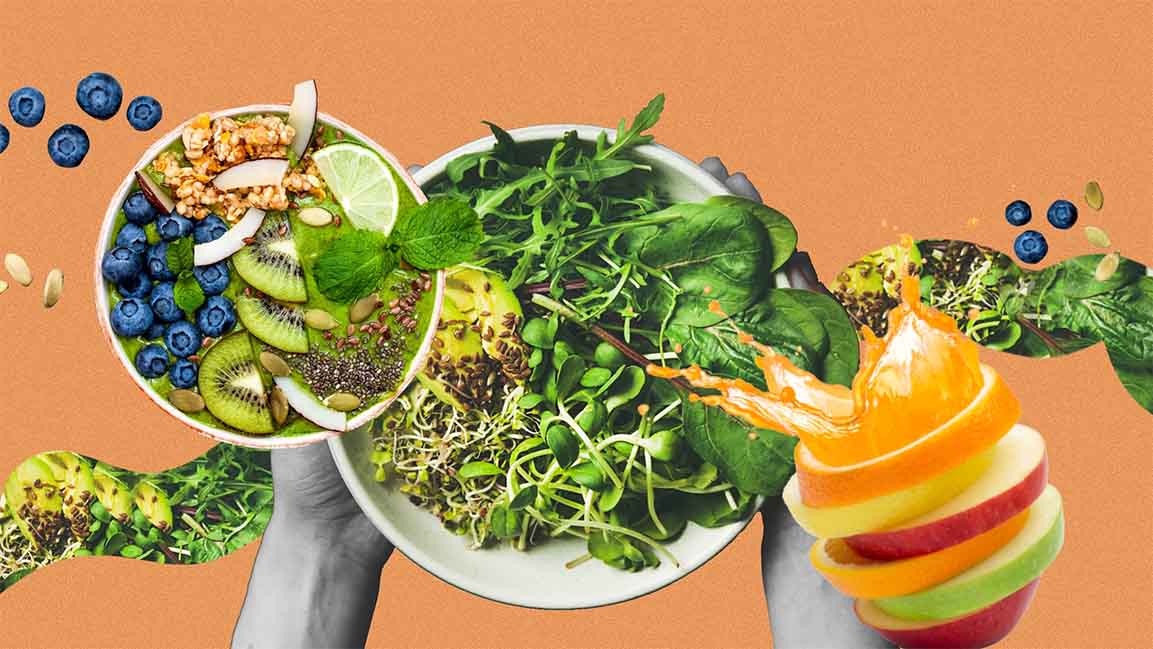- | 11:00 am
Want to get rid of brain fog? Eat this
Suzanne Saleh, a Dubai-based integrative nutrition health coach, tells us what to eat better to function better at work.

Can’t think clearly? Perhaps, you need to cut back on the caffeine intake or eat more fresh produce. Research indicates how a healthy diet can improve physical health, cognitive function, and work performance. One of the latest trends is the concept of functional foods. A 2019 study published in BMC Public Health found that employees who ate a healthier diet were more productive at work and had fewer absences due to illness.
So, what are the specific benefits of eating healthy for productivity? We asked Suzanne Saleh, a Dubai-based integrative nutrition health coach, to give us insights into how we can eat better to function better at work.
FOODS TO FLUSH OUT BRAIN FOG
Your short attention span and difficulty focusing may indicate poor lifestyle and food choices. Brain fog is attributable to hormonal changes, medication side effects, inflammation, high glucose levels, and autoimmune diseases. To combat brain fog, eating whole foods is a must. Saleh recommends an increase in Omega-3 fatty acids. This helps maintain healthy cells and communication in the nervous system. Flavonoids, natural antioxidants found in dark leafy vegetables, onions, apples, berries, cherries, soya beans, and citrus fruits, can reduce inflammation and protect the brain from damage by blocking plaque buildup and boosting blood flow. A good way to start is to include foods like cocoa-based foods, nuts and seeds, citrus fruits, berries, and greens such as spinach and broccoli.
NATURE’S MEDICINE TO DIRECT THE DAY
Your gut health is the first part of your body that suffers whenever you eat the wrong food. It is directly associated with your body’s immune system function and is a factor that determines stress levels in the body.
Saleh recommends avoiding foods rich in sugar, processed foods like cookies, chips, fast foods, animal products especially processed ones, caffeine, alcohol, trans fats, saturated fats found in fried foods, and processed grains and oils.
Try to lean towards whole foods such as vegetables, healthy fats like nuts and seeds, avocado, berries, nutritional yeast, fermented foods (kefir, sauerkraut, kombucha), and legumes (chickpeas, beans, peas). She says that we are what we eat, and food is the first and best medicine.
INTERMITTENT FASTING TO INCREASE FOCUS
Saleh recommends swapping your coffee with intermittent fasting to feel more energized and productive. During intermittent fasting, concentration levels often improve since the body becomes more efficient at using energy. Starting with shorter fasts and gradually increasing the duration across days and weeks is advisable. Initially, you may experience cravings, fatigue, or low energy for one to three days, but these side effects are temporary and will wear off.
INVEST IN A BRAIN JUICE
A good way to start is by incorporating green smoothies into your diet. Smoothies not only taste great, but they also provide the hydration, energy, and strength needed to tackle a productive day. The flexibility of smoothie preparation makes it easy to fit into any schedule, says Saleh. So, a colorful plant-based smoothie is a perfect choice, whether you need a quick breakfast before heading out the door or a midday pick-me-up.
Here are some recipes she has curated that will bring you mental clarity and stability:







































